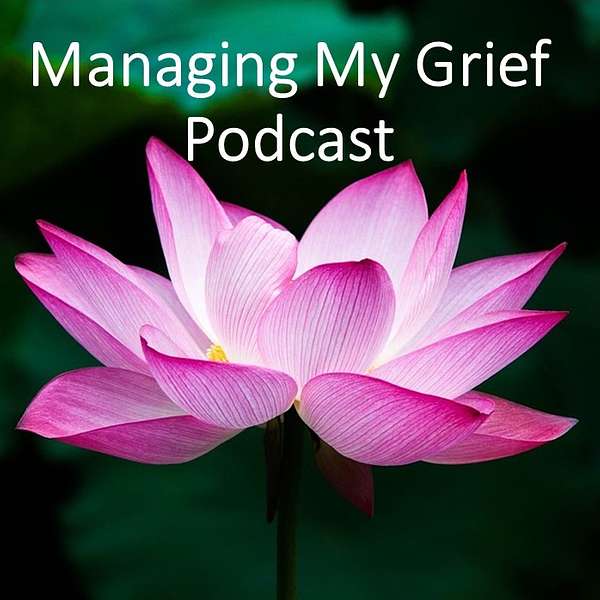
Managing My Grief
Managing My Grief
MMG2 Events That Can Cause Grief
Many people who minimize their experience with loss because people who they are close to didn’t validate their experience. Loss is a part of life, so naturally, grief is a part of life. If someone you know minimizes your experience with loss, whether it’s loss of a job, death of a partner, or leaving college, remind yourself that this is your experience. Not theirs, so they aren’t always going to understand.
That’s an excerpter from the show. Today, we’ll be discussing Events that Cause Grief. And, here’s the intro.
Intro
I’m glad you chose to join me for this discussion on Events that Cause Grief.
When you hear someone is grieving, what’s the first thing you think? If you thought something along the lines of someone must of died, you’re with the majority. Although death is definitely a leading cause for someone to experience grief, there are other events that happen in life that can lead to grieving.
As I was preparing for the show and looking over these definitions, I was reminded and touched by how deeply the pain of being deprived can be. How you want something back so badly, but are unable to attain that thing again. To never be able to experience something the way it was once experienced and only have memories or items to remind you of that experience. It’s understandable why grief is so challenging to live with and why some deliberately choose to push down their grief instead of acknowledging it. The pain can be overwhelming to even think about for some. After listening to the show, if you feel overwhelmed or down, remember to do something healthy to lift your spirits. I’ll share a few ideas at the end as well.
In a previous show discussed what grief. To listen, go to the Defining Grief, Mourning, and Bereavement Show. For now, I’ll give an overview. Grief is basically the inward distress one has after experiencing a loss.
Loss and lose have many definitions in the Webster’s Dictionary. Some of which include, to miss from one’s possession; to suffer deprivation of; to part with especially in an unforeseen or accidental manner; the harm resulting from separation; a decrease in amount, magnitude, or degree, and several more definitions.
So how does this relate to identifying events that lead to grief? It’s all about one’s internal reaction. Two people can have the same experience, but based on genetics, perspective, experiences, and many more factors, the two individuals will have completely different reactions.
Take for example one who experiences a divorce. Divorce is a common cause for grief. While one person who is getting a divorce may feel elated, another person may feel deprived, heartbroken, and distressed, resulting in them experiencing grief. While listening to this list, understand that not everyone who has these experiences will also experience grief.
This list was taken from GreifRecoveryMethod.com Now, let’s get to the list.
A few events include, death of a spouse, death of a family member or friend, divorce, and marital separation. This next one I found to be very interesting, marriage. Marriage in itself can bring grief. There are other aspects to marriage that can bring grief, such as, an increase in conflict within a marriage.
Imprisonment is another event that can lead to grief. Grief is very common amongst people who experience chronic illnesses. This part of the list includes loss of control of body, change in health of a family member, personal injury or illness. Elizabeth Kubler Ross was a Swiss-American Psychiatrist who wrote a book called On Death and Dying. In her book she interviewed 200 cancer patients, which is where we get the 5 stages of grief or what some may call the Kubler-Ross Model. In a future show I’ll discuss the different stages or experiences of grief. Kubler-Ross did a superb job in showing how many people with